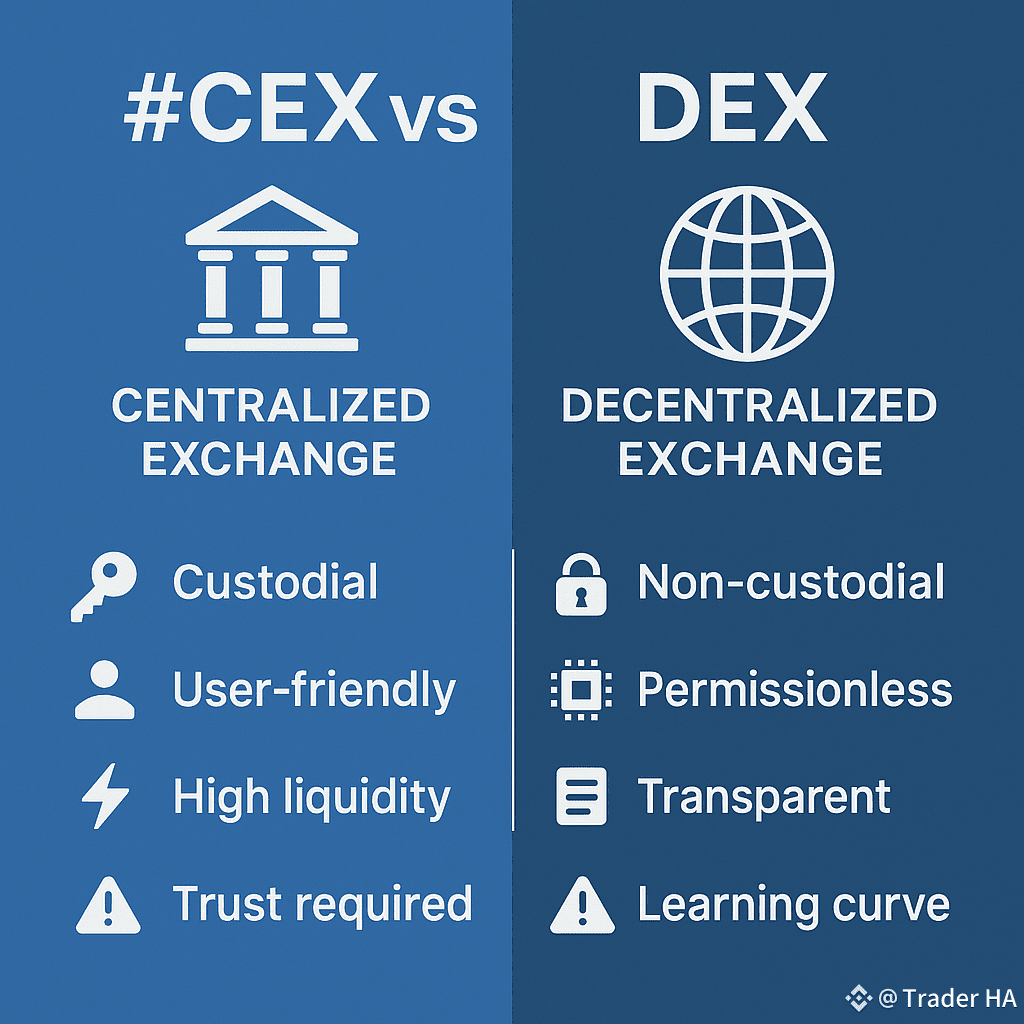As the world of cryptocurrency grows, so do the ways people buy, sell, and trade digital assets. At the heart of this activity are two main types of platforms: Centralized Exchanges (CEXs) and Decentralized Exchanges (DEXs). If you're new to crypto or looking to better understand the ecosystem, here's a simple breakdown of what makes these exchanges different—and why it matters.
---
🏛 What Is a Centralized Exchange (CEX)?
A Centralized Exchange is a platform operated by a company that facilitates crypto trading between users. Think of it like a traditional stock exchange, but for digital assets.
Examples:
Binance
Coinbase
Kraken
Bitfinex
🔑 Key Features:
Custodial: The exchange holds your funds and private keys.
User-Friendly: Easier onboarding and interfaces for beginners.
High Liquidity: Large volume of trades means faster transactions.
Customer Support: Teams available to help with issues or recovery.
⚠️ Trade-offs:
Trust Required: You rely on the company to safeguard your assets.
Regulatory Risks: Subject to local laws, KYC, and potential shutdowns.
Security Risks: Targets for hackers due to the concentration of funds.
---
🌐 What Is a Decentralized Exchange (DEX)?
A Decentralized Exchange operates without intermediaries. It allows users to trade directly from their wallets using smart contracts on a blockchain.
Examples:
Uniswap
🔑 Key Features:
Non-Custodial: You keep full control of your funds and private keys.
Permissionless: No account or identity verification required.
Transparent: Open-source code and on-chain transactions.
⚠️ Trade-offs:
Learning Curve: More complex for beginners.
Lower Liquidity (for some pairs): May lead to slippage.
Limited Customer Support: You're your own bank—no password reset.
---
🧠 CEX vs DEX: Which One Should You Use?
Feature CEX DEX
Custody Held by exchange User retains full control
Ease of Use Beginner-friendly Requires technical knowledge
KYC/AML Usually required Often not required
Speed Fast via internal matching Slower, depends on blockchain
Token Availability Often limited Broader range via listings
Privacy Lower Higher
Security Custodial risk Smart contract risk
---
🧩 Final Thoughts
Choosing between a CEX and DEX depends on your priorities. If you're looking for convenience, fiat on-ramps, and support, a CEX might be the better choice. But if you value privacy, decentralization, and financial sovereignty, then a DEX may align more with your goals.
In many cases, savvy users leverage both types of platforms depending on their needs.
---
🔁 #CEXvsDEX101
💡 Choose the exchange that matches your comfort level, goals, and risk tolerance. In crypto, knowledge truly is power.
